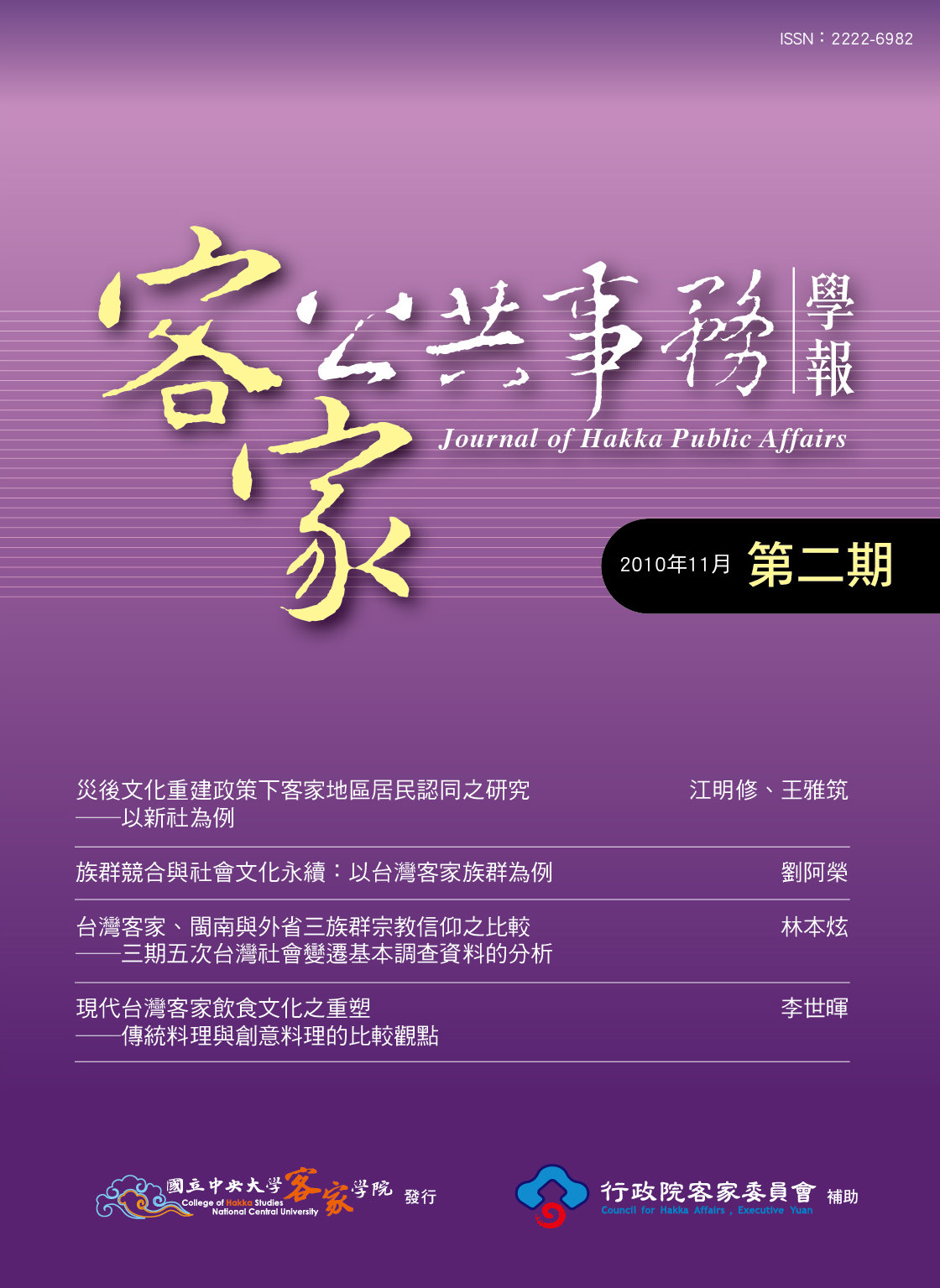Hot News
| 中文篇名 |
台灣客家、閩南與外省三族群宗教信仰之比較:三期五次台灣社會變遷基本調查資料的分析 | |
|---|---|---|
| 英文篇名 |
The Comparative Study of Religious Beliefs and Behaviors of Three Ethnic Groups in Taiwan | |
| 中文摘要 |
有關台灣客家族群的宗教信仰研究近來方興未艾,各種田野調查研究不斷翻新過去對客家宗教信仰的印象。過去有關台灣宗教信仰的研究中,較少有各族群宗教信仰的比較研究,尤其是有關客家和閩南宗教信仰的比較,需要更多的研究投入。1999年「台灣社會變遷基本調查」有豐富的關於宗教信仰的問卷題項,同時有受訪者父親和母親籍貫之題項,可據此了解受訪者之族群屬性。本文利用此一抽樣調查資料庫,比較台灣的客家、閩南和外省,這三個族群在宗教態度、宗教行為、術數行為等各方面的差異。研究發現,在宗教態度上,外省人對神、鬼、死亡和靈魂有比較不相信的傾向,閩南和客家在宗教態度上則幾乎沒有什麼差別,但在宗教行為上,則有一些細緻而微小的差異存在。外省人較少去寺廟拜神,客家人較常去禮佛。在祖先崇拜上,客家人和閩南人並沒有差別,但客家人較少將祖先牌位放在家裡。外省人最不重視風水,而客家人則只有在「為自己住的房子看風水」這一項的比例,高於閩南和外省。客家人儘管重視祭祀祖先,但是對於祖先墳墓和祖先靈骨的風水的重視,和閩南人並沒有差異。在術數行為方面,分別可以有不同的行為指標,區分客家、閩南和外省。客家人較少在家裡擺神像,也較少去收驚。 | |
| 英文摘要 |
Comparative study of religious beliefs of various ethnic groups in Taiwan, especially between Hakka and Fujian, are not many in social sciences. The purpose of this article is to compare religious beliefs of three ethnic groups in Taiwan. There are many items on religious beliefs in the 1999 Taiwan Social Change Survey. And the respondents are asked to identify the ethnicity of their parents. These items on religious beliefs and ethnicity are analyzed to compare the religious attitudes, religious behaviors and ancestor worship between Hakka, Fujian and Mainlander in Taiwan. In general, few differences on religious attitudes are found between three ethnic groups. But there are some differences in the aspects of religious behaviors. The Mainlanders went to temple less frequently, while the Hakka people worship Buddha most frequently. Ancestral tablets are less frequently found in Hakka houses than in their family shrines, while there is no significant difference on the attitudes of ancestor worship between Hakka and Fujian people. Hakka people are not so believed in and practice so frequently Feng Shui as described in the literatures. | |
| 關鍵詞 |
宗教信仰、台灣社會變遷基本調查、客家、閩南、外省、religious beliefs、Taiwan Social Change Survey、Hakka、Fujian、Mainlander | |
| 刊名 | ||
| 期數 | ||
| 起訖頁 |
47-73 | |
| 出版單位 | ||
| 上一篇 | ||
| 下一篇 |



